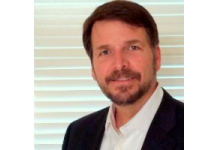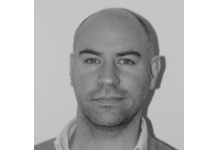Solving State Corruption With Technology

- Chris Skinner , Chairman at Financial Services Club
- 07.04.2017 10:15 am technology , Chris Skinner is known as an independent commentator on the financial markets and fintech through his blog, the Finanser.com, as author of the bestselling bookDigital Bank and its new sequel ValueWeb. In his day job, he is Chair of the European networking forum: the Financial Services Club. He is on the Advisory Boards of many companies including Innovate Finance, Moven and Meniga, and has been voted one of the most influential people in banking by The Financial Brand (as well as one of the best blogs), a FinTech Titan (Next Bank), one of the Fintech Leaders you need to follow (City AM, Deluxe and Jax Finance), one of the Top 5 most influential people on BankInfoSecurity’s list of information security leaders, as well as one of the Top 40 most influential people in financial technology by theWall Street Journal’s Financial News.
I try to generally avoid making political commentary on the blog as it’s not appropriate. This is a blog about technology and finance, not the economy and politics. Every now and again the two come together such as with Brexit and Donald Trump. Equally sometimes they cannot be avoided as the politics impacts the financial world on regular occasion. Just look at the regulatory changes since 2008 to see that change.
However, I am going to step into dangerous territory here as I’ve just been travelling Latin America (Brasil and Argentina) and both countries taxi drivers were lamenting their corrupt and crappy politicians. My Brasilian friend sent me a video clip, that says the best way to get rich and be unaccountable is to be a politician, and the Argentineans were on strike the day I got there, protesting about the government’s austerity measures. The inflation rate is around 20% per annum, down from double that last year, and the government was only voted into office in late 2015. The previous administration are in court over fraud allegations, with the ex-President Cristina Fernandez de Kirchner charged with diverting $5 billion from government funds to her own pockets.
Add onto this my Argentinian friend, who was showing me some shell hotels in one of the tourist areas. The story went that the hotels were funded by the banks and subsidies to erect six new luxurious tourist accommodations. The buildings were being built, the money was delivered. Then the building stopped and the shells of the hotels left as blights on the landscape as the funds went somewhere they weren’t meant to be.
Whatever. Why am I bothered?
I’m bothered because I dislike crime, but the general masses of us are caught, trapped and thrown in jail if we break the law. It doesn’t happen if you’re a politician or a banker. White collar crime is protected by the collegiate, statist system. The general underclass is not.
That is a reason for being angry, but what is the solution?
Oh yes, blockchain.
Bearing in mind my friend David Birch will say you mean Distributed Ledger Technology (DLT), which is not the same as blockchain, I’m just really talking about how this new technology capability of authenticating via algorithms and consensus mechanisms with no human technology involved, can create a new, transparent system to fight corruption.
This idea is cropping up more and more in my thinking, and was first ignited by Jack Ma’s idea of using DLT and blockchain to ensure that charitable giving is given to the charities.
Chinese billionaire Jack Ma wants to pry the lid off China’s opaque charities. Ant Financial is using the technology behind bitcoin to record transactions and improve the accountability of the country’s philanthropic organizations.
The company began a tamper-proof ledger based on blockchain technology to record donations made by its more than 400 million users of Alipay, the online payments and investment service. Donors on its “Ant Love” charity platform will be able to track transaction histories and gain a clearer understanding of where their funds go and how they’re used, Chief Technology Officer Cheng Li said. That makes it tougher to alter records, and may help restore some of the trust that’s been squandered over the years.
Since then, I’ve thought to myself that anyplace where there is the possibility of fraud and corruption – money laundering, investing in sharia-compliant products, moving funds offshore, giving to charities, paying taxes, managing government funds and more – could be assisted by DLT. It could provide a fully transparent, tamperproof view of who paid what to whom. Brilliant.
This means that a lot of government corruption could be cracked down upon and, looking at the most corrupt nations of the world, Argentina and Brasil are in the middle of the scale 95th and 79th in the world respectively. So we could stop these corrupt activities by having governments crack down upon these issues first … but then I realised why would any politician crack down on government corruption when the decision makers – the government – are the ones leading the corruption.
Ah well, it was worth a try.
























